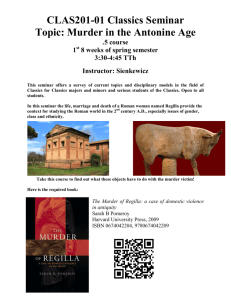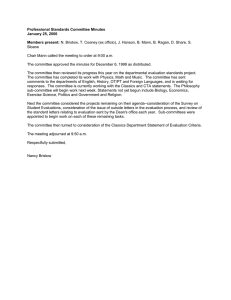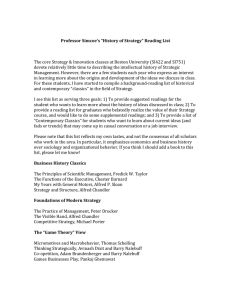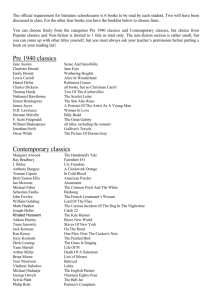FINAL REPORT (1 page overview) Dr Michael Scott
advertisement
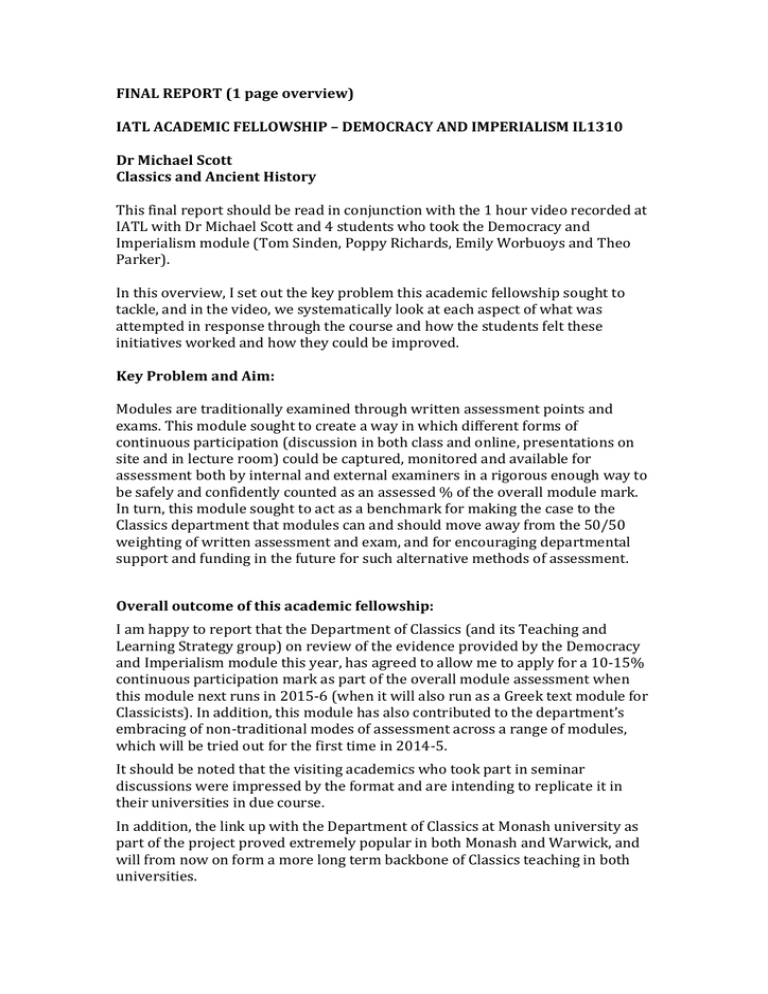
FINAL REPORT (1 page overview) IATL ACADEMIC FELLOWSHIP – DEMOCRACY AND IMPERIALISM IL1310 Dr Michael Scott Classics and Ancient History This final report should be read in conjunction with the 1 hour video recorded at IATL with Dr Michael Scott and 4 students who took the Democracy and Imperialism module (Tom Sinden, Poppy Richards, Emily Worbuoys and Theo Parker). In this overview, I set out the key problem this academic fellowship sought to tackle, and in the video, we systematically look at each aspect of what was attempted in response through the course and how the students felt these initiatives worked and how they could be improved. Key Problem and Aim: Modules are traditionally examined through written assessment points and exams. This module sought to create a way in which different forms of continuous participation (discussion in both class and online, presentations on site and in lecture room) could be captured, monitored and available for assessment both by internal and external examiners in a rigorous enough way to be safely and confidently counted as an assessed % of the overall module mark. In turn, this module sought to act as a benchmark for making the case to the Classics department that modules can and should move away from the 50/50 weighting of written assessment and exam, and for encouraging departmental support and funding in the future for such alternative methods of assessment. Overall outcome of this academic fellowship: I am happy to report that the Department of Classics (and its Teaching and Learning Strategy group) on review of the evidence provided by the Democracy and Imperialism module this year, has agreed to allow me to apply for a 10-15% continuous participation mark as part of the overall module assessment when this module next runs in 2015-6 (when it will also run as a Greek text module for Classicists). In addition, this module has also contributed to the department’s embracing of non-traditional modes of assessment across a range of modules, which will be tried out for the first time in 2014-5. It should be noted that the visiting academics who took part in seminar discussions were impressed by the format and are intending to replicate it in their universities in due course. In addition, the link up with the Department of Classics at Monash university as part of the project proved extremely popular in both Monash and Warwick, and will from now on form a more long term backbone of Classics teaching in both universities.
